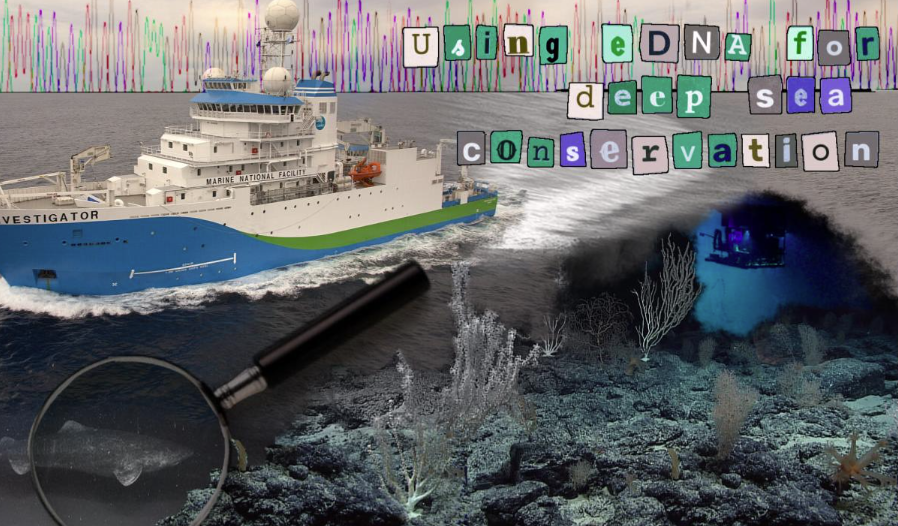How can COP16’s biodiversity policy be improved? Photo credit: Mattia Pavesi via Unsplash
The United Nations Biodiversity Conference is well past its nascent years, but this year’s iteration, COP16, has been the first since the adoption of the historic Kunming-Montreal Global Biodiversity Framework (GBF) in December 2022. It includes 23 targets for 2030 and 4 goals for 2050, which have set global biodiversity policy on an ambitious, albeit sorely necessary, direction. Yet despite its importance, it has been overshadowed by its notorious sibling, the United Nations Climate Change Conference (CCC), known this year as COP29.
…it has been overshadowed by its notorious sibling, the United Nations Climate Change Conference (CCC), known this year as COP29.
This is a mistake, considering the immense potential the Convention on Biological Diversity (CBD) has to create change. Biodiversity and climate change efforts are deeply inter-reliant, and addressing the former is crucial for generating meaningful, sustainable climate action. While COP29 is swamped with accusations of greenwashing, COP16 has seen genuine progress made on biodiversity goals, including unprecedented inclusion of Indigenous voices and the establishment of the first multilateral benefit-sharing mechanism for data on genetic resources—for an overview of this progress, read our explainer here.
Biodiversity and climate change efforts are deeply inter-reliant.
However, it suffers from a similar problem to climate change conferences: funding. It is this treacherous gap between the amount of money needed to address biodiversity and the amount being provided—current estimates by BloombergNEF place the difference at $942 billion—that could lead the UN Biodiversity Conference down the same corporatised, ineffective path that the CCC has already gone down. Without a careful approach and clear values going forward, we risk seeing the same issues occur as the ones that plagued COP29.
Holistic transformation is needed, and this can be broken down into several steps: greater economic engagement, a larger number of formal mechanisms for participation, a commitment to science-backed specificity, and a committed COP presidency.
Greater economic engagement
Similarly to climate change, the funding gap between what we have and what is required plagues biodiversity. Lim Li Ching, a senior researcher at Third World Network (TWN), attributes this to rich nations’ lack of initiative: ‘[their] refusal to consider a dedicated fund to help biodiversity action in poorer nations has widened distrust and delayed progress’. While the establishment of the Tropical Forest Forever Facility, along with New Zealand, France, Austria and Quebec’s combined pledge of $163m to the Global Biodiversity Framework Fund, are admirable wins for the problem of resource mobilisation, they are not enough. Katie Hutchinson, a member of the Oxford delegation focusing on nature-based solutions in Indigenous communities in Ecuador, calls the funding that COP16 did achieve ‘pennies’ in comparison to what is needed.
Part of the problem with this funding model is its reliance on traditional donation and grant mechanisms.
Part of the problem with this funding model is its reliance on traditional donation and grant mechanisms. It relies on the goodwill and economic prosperity of countries, rather than engineering systematic change. Even at the sub-national level, funding mechanisms only focus on superficial change: for example, emphasis on a “biodiversity credits market”, which allows countries to receive certified credits for projects that increase biodiversity. These credits can then be sold to other firms to offset projects in the local area resulting in biodiversity loss. Modelled after climate credits, this market scheme has all the same pitfalls as its predecessor. In an analysis of the newly released biodiversity credit schemes, Simon Counsell from the TWN reveals several design failures: a regulatory body with a vested financial interest to never reject projects or minimise generated credits, no matter their impact on biodiversity; certification companies that have a financial incentive to approve projects as having positive outcomes; and voluntary, unaccountable bodies to manage the process. From a normative level, Biodiversity Markets Watch’s civil society statement calls the markets ‘a wrong answer to the wrong question’. Such commodification of nature runs counter to the mindset we need for genuine change: recognising that our economic, social, and environmental systems are all interlinked and rely on each other for stability and continued preservation.
Gustavo Cabrero Castellanos, another member of the Oxford delegation, points out the necessity of broad societal transformation beyond nature financing. He tells The Oxford Scientist, ‘if we value an ecosystem service, we are not valuing the whole ecosystem…we have to start changing the way we work in the economy and the way we give values to things’. Castellanos’ prior experience in the insurance sector also offers insight into how private sector involvement should look: it is unsustainable to have an economy that gives payouts to biodiversity while failing to align itself with conservation and nature-positive goals.
Formal mechanisms for participation
Future biodiversity COPs also need to improve the mechanisms for stakeholder access. From interviews with the Oxford delegation, part of this involves greater accessibility of the formal process required to speak at COPs. In order to have a voice in working group discussions, delegates should approach parties beforehand and engage at least two parties to make a joint proposition. Failure to make such knowledge accessible means that policymaking will only become more remote from the public, and risk depriving discussions of valuable input from academic, private sector, NGO and local stakeholder communities.
Hutchinson also points out the logistic inaccessibility that COP16 has suffered from. Despite major advances being made in terms of protecting the rights of Indigenous communities, disproportionately members of the Global South, many delegates from the Global South remained underfunded. As the conference overran into the early hours of 2 November, many delegates were forced to catch flights home before discussions finished. The civil society organisation, Avaaz, also noted how translations for delegates were cut on 30 October, in the middle of negotiations of Article 8(J), forcing listeners to proceed in English only. Hutchinson also noted that, despite the high number of panels on Indigenous rights and protections, few of these panels actually included Indigenous voices.
…many delegates from the Global South remained underfunded.
Beyond COPs, civil society participation in national policymaking and the NBSAPs must also be achieved. Castellano pointed out how Grupo SURA, the largest financial institution in South America outside of Brazil, did not have any active engagement with the Colombian government on considering biodiversity or nature-based regulations. He also noted that differences in participation reinforced regional disparities. While regulators in Europe participate much more actively in considering nature-related financial disclosures, those in Latin America did not engage in the same kind of active involvement.
Academic voices lack inclusion just as much as private sector ones. Much of the formal participation is limited to the Intergovernmental Science-Policy Platform on Biodiversity and Ecosystem Services (IPBES), the formal advisory panel to the CBD and the primary means through which academic institutions have their research heard by policy-makers. The final resolution on IPBES at COP16 was lacklustre: it ‘encouraged’ countries to make use of IPBES consultancy, and ‘invited’ IPBES to consider a range of options for future assessments. In UN terms, ‘encourage”’ and ‘invite’ are amongst the weakest terms that can be used amongst parties.
Science-backed specificity
Lessons from the Aichi targets ring out clearly here: targets with clear, science-backed goals are needed for real change. Even more than climate change, biodiversity requires ecosystem-specific knowledge. Ideas of “net zero biodiversity loss” are particularly inane because of this: the loss of one hectare of species-rich Amazon rainforest, for example, cannot be compensated for by creating one hectare of grassland meadows in the French countryside. For the UK, Josh Shaw, a delegate for the Global Youth Biodiversity Network (GYBN), highlights how nature-friendly farming and ensuring that the conversation sector works in partnership with agriculture is key to biodiversity recovery in the UK.
Indicators also need to be more rigorous. Certain economic measures used in COP16 resolutions were undefined, such as “insurance product”. Whether this refers to risk premiums, financial flows, or insurance of the whole system is unclear. Marine biodiversity indicators are also incredibly underdeveloped: there were no specific indicators for coral reefs, despite the GBF’s goals to protect 30% of oceans by 2030. Although this COP saw the term, “ecologically or biologically significant marine areas” (EBSAs), become formally defined, such classification does not imply any level of additional protection.
…there were no specific indicators for coral reefs, despite the GBF’s goals to protect 30% of oceans by 2030.
Along with the need for specificity are the ideas of monitoring, oversight, and accountability. The failure to establish a monitoring framework is obviously disappointing, but there are also other failures of regulation which have been obscured. Contributions to the Cali fund, for example, in return for the use of digital sequence information, are voluntary. Pharma, cosmetics, and technology conglomerates which use genetic data should contribute 1% of their profits to the fund, but there is no requirement for them to do so. What is more, they no longer have to prove that they did not use genetic data either—a clause which was removed in the penultimate draft.
Committed COP Presidency
The president of COP16, Colombian Environment Minister Susana Muhamad, has had a crucial role in shaping the conference. Called a ‘rising star of Colombia’s environmental movement’ by LeMonde, Muhamad’s leadership has put Colombia at the forefront of numerous proposals including the establishment of the Tropical Forest Forever Facility, the recognition of Afro-descendants, and pushes to bring biodiversity into mainstream discussions. Despite some rushed proposals, including the last-minute push for establishing a catch-all fund, Colombia’s vision for biodiversity is far-reaching.
Such a perspective reflects Colombia’s broader commitment to biodiversity and nature. Both Gustavo Petro, President of Colombia, and Luiz Inácio Lula da Silva, President of Brazil, have emphasised deforestation reduction and recognition of the role of Indigenous peoples in their policies. Their support for biodiversity, beyond the conference, contrasts starkly with the failures in leadership at climate conferences: the BBC exposed that a COP29 chief executive used his role to organise discussions for fossil fuel deals, while leaked documents revealed that the United Arab Emirates, host of COP28, planned to use its position to consolidate oil deals.
The bigger challenge for CBDs is retaining local support and pushing global collaboration while remaining true to their values. Muhamad already emphasised the role of COP16 in Cali as a stepping stone to the COP30 climate summit that will be held in Belém, in the Brazilian Amazon, revealing that she was working with the COP30 Brazilian presidency to ensure that nature remained centred in discussions.
Conclusion
COP16 has shown the potential to address biodiversity in a way that COP29 has failed to do with climate change. While the fact that it can still achieve historic developments is partly because it has garnered neither traction nor mainstream attention until 2022, such progress should still be celebrated. However, we also need to protect this hope from being smothered: as global biodiversity policy enters into a new phase, we must learn our lessons from the missteps of climate change action and do better going forward. There is no time to do otherwise.





